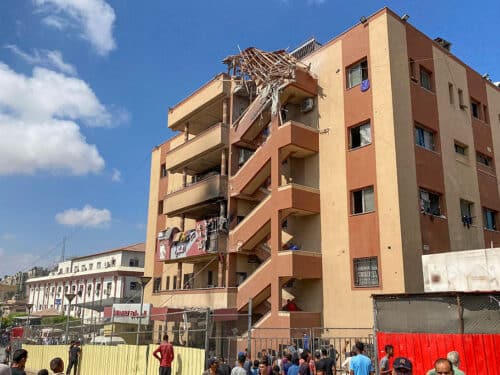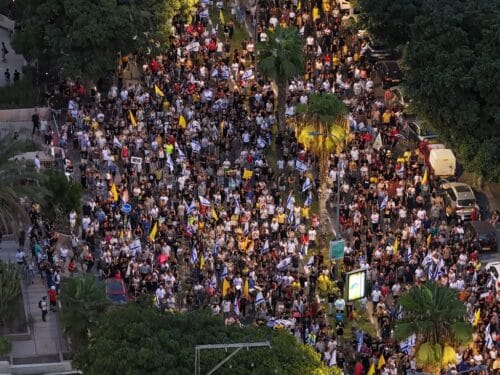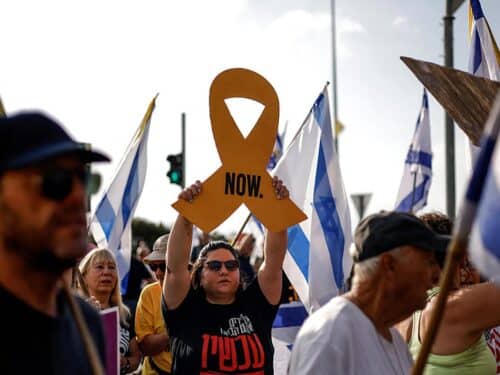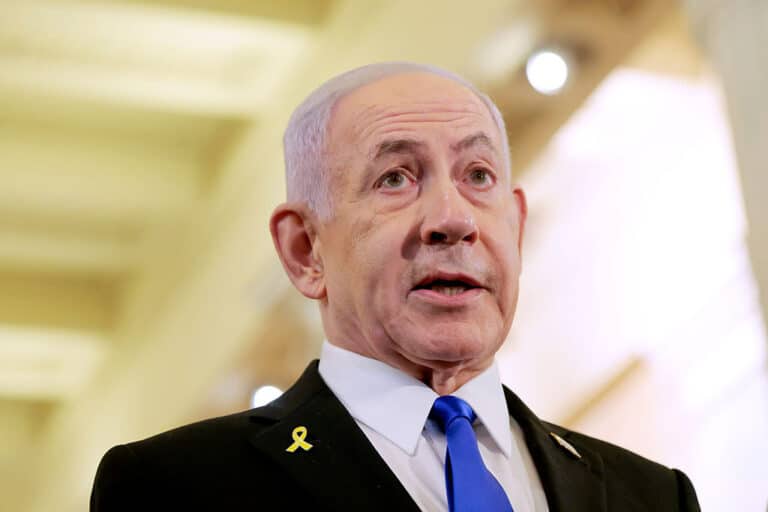
The Israeli security cabinet decided on Thursday to instruct the IDF to take over Gaza City, including areas it hasn’t operated in yet, while also issuing a clear set of conditions under which Israel will agree to end the war.
In the days leading up to the decision, sources in the Prime Minister’s Office told Israeli media that Prime Minister Benjamin Netanyahu was going to push for a complete occupation of the entire Gaza Strip.
IDF Chief of Staff Eyal Zamir reportedly expressed harsh opposition to such a plan, warning that it would put the 50 hostages still in Gaza in extreme danger, further damage Israel’s international legitimacy, and exhaust the IDF’s reservist capabilities. Instead, Zamir proposed that the IDF encircle Gaza again to put more pressure on Hamas.
He additionally warned the ministers that there isn’t humanitarian infrastructure prepared for the million Gazans who will be transferred out of Gaza City. “If you move forward with this, then remove the return of the hostages from the goals of the war,” the chief of staff warned.
In light of the IDF’s opposition and a public and international uproar, Netanyahu instead proposed that the Israeli take over only Gaza City at the cabinet meeting. After a 10-hour-long discussion, the cabinet moved forward with that proposal, deciding that the IDF would “prepare for taking control of Gaza City while distributing humanitarian assistance to the civilian population outside the combat zones.”
The Security Cabinet has approved the Prime Minister's proposal for defeating Hamas.
— Prime Minister of Israel (@IsraeliPM) August 8, 2025
The IDF will prepare for taking control of Gaza City while distributing humanitarian assistance to the civilian population outside the combat zones.
The cabinet additionally adopted five principles for ending the war:
1. Disarming Hamas
2. Returning all the hostages
3. The demilitarization of the Gaza Strip
4. Israeli security control of Gaza
5. The establishment of an alternative civil administration that is neither Hamas nor the Palestinian Authority
This is the first time throughout the war that the Israeli government has officially published specific conditions under which it will agree to end the war.
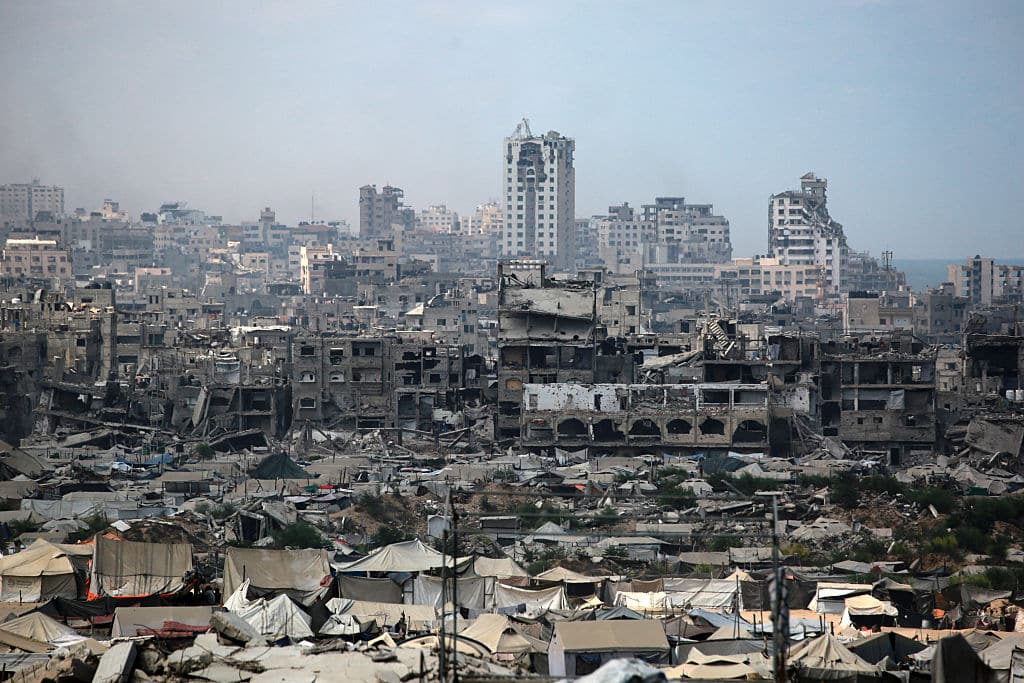
Why is this decision being made now?
Negotiations to reach a hostage release and ceasefire deal collapsed in recent weeks, with Israel and Hamas blaming each other for the failure of the talks.
Israel said that Hamas issued new demands that it couldn’t accept. Hamas and some mediators said that Israel stepped out of negotiations as the two sides were nearing a deal, and that the gaps remaining weren’t unbridgeable.
Additionally, as international pressure on Israel over the humanitarian situation in Gaza increased in the past two weeks, Hamas publicly hardened its stance, announcing it wouldn’t return to talks until it believed that enough humanitarian aid was entering Gaza.
Pressure is also mounting, both domestically and internationally, for the Israeli government to present a clear endgame for the war in Gaza after nearly two years of fighting.
Part of the heat coming from within Israel is due to the failure of the IDF’s Operation Gideon’s Chariots, which was launched in May and wrapped up over the past few weeks. The operation aimed initially to establish complete security control over most or all of Gaza and move the population southward, with a larger goal of pushing Hamas to agree to a ceasefire deal on Israel’s terms. Two months later, none of these goals have been achieved.
Part of the complexity is that the IDF has so far refrained from operating in Gaza City and neighborhoods in central Gaza, where it believes Hamas is holding many of the hostages. The IDF is concerned that if it enters these areas, Hamas will kill the remaining living hostages.
Hamas is still managing a significant insurgency, even in some of the areas that the IDF was operating in, targeting Israeli forces with ambushes and improvised explosives like bombs planted on the roads. Forty-eight Israeli soldiers have been killed since the beginning of Operation Gideon’s Chariots.
Additionally, many Gazans have stayed in Gaza City and the neighborhoods in central Gaza instead of moving southward. Over a million people are estimated to still be in Gaza City, and hundreds of thousands are still in central Gaza. Entering these areas without causing significant civilian casualties will be extremely difficult unless this population moves.
A poll published by Maariv on Friday found that most Israelis (57%) believe that Israel should try to reach a comprehensive deal with Hamas to release all the hostages in exchange for an end to the war and an Israeli withdrawal from Gaza. Another 30% said they believe Israel should occupy Gaza, even at the cost of the lives of the hostages, while the remaining 13% said they were unsure.
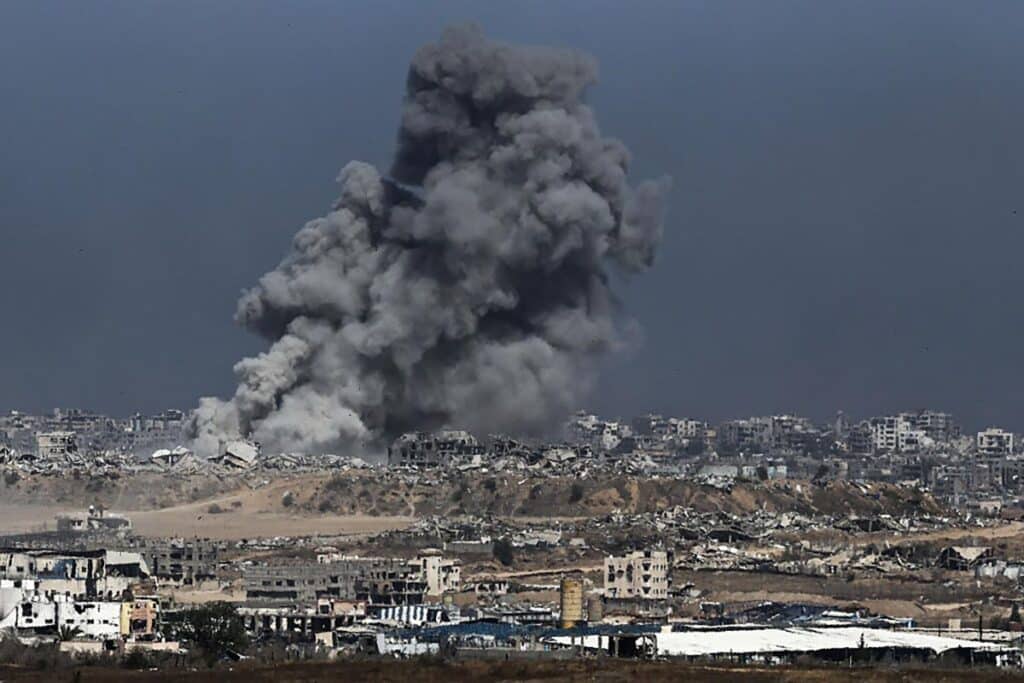
Is this a new operation or a new push for a ceasefire?
The decision was worded carefully to avoid legal issues and leaves a lot of room for interpretation.
Instead of the Hebrew word for “occupation,” which had been used in earlier briefings by officials in the Prime Minister’s Office this week, the decision used the word for “takeover,” reportedly in order to avoid legal arguments which would require Israel to take full responsibility for the civil administration of Gaza.
Under international law, an occupying power is required to provide civil services to the areas it occupies. Israeli courts have accepted the government’s argument that it isn’t occupying Gaza up until now, but a decision using the word for occupation could change that, forcing the government to take responsibility for governing Gaza.
The decision also states that the IDF “will prepare” to take over Gaza City, not that it’s going to do so in the immediate future.
The planning for this operation is expected to take at least another two months. According to Israeli media, the process will begin with an order for civilians to evacuate Gaza City by Oct. 7. Afterwards, a siege will be imposed on anyone remaining in the city.
That long gap before the launch of the operation is reportedly intentional, meant to provide a window for Hamas to agree to a ceasefire agreement more on Israel’s terms.
A senior Israeli official told Ynet that the government intends to eventually effectively occupy all of Gaza and that Gaza City is just the start. However, the official added that this plan could be halted if a hostage deal is reached.
The Associated Press reported on Friday that mediators from Egypt and Qatar are working on a new proposal for a ceasefire deal, which would see the release of all the hostages in return for an end to the war and the withdrawal of Israeli forces.
The proposal would call for Hamas to relinquish control of Gaza. A Palestinian-Arab committee would run Gaza and oversee reconstruction until a new Palestinian administration and a new police force — trained by two United States allies in the Middle East — can take over.
The mediators are trying to figure out how to handle the issue of Hamas’ weapons, since Israel is demanding disarmament and Hamas is refusing that option. One option being presented is “freezing arms,” which would allow Hamas to keep its weapons as long as it doesn’t use them.
Netanyahu insists Israel isn’t interested in keeping Gaza
Before the cabinet meeting on Thursday, Netanyahu told Fox News that Israel doesn’t intend to govern Gaza in the future.
'WE INTEND TO': Israeli prime minister @netanyahu tells FOX News' @BillHemmer that Israel is aiming to take control of Gaza in order to liberate its people from the grips of Hamas and end the threat of the terror regime against his country. pic.twitter.com/lxQkYKHEB8
— Fox News (@FoxNews) August 7, 2025
Netanyahu told Fox that Israel intends to take control of the entirety of Gaza in order to remove Hamas and to pass the governance of Gaza to a civilian administration “that is not Hamas and not anyone advocating the destruction of Israel.” Israeli officials have rejected the option of having the Palestinian Authority take control of Gaza since the PA still provides substantial economic and social benefits to terrorists and includes lessons glorifying and inciting violence against Israelis in its education system.
“We don’t want to keep it. We want to have a security perimeter. We don’t want to govern it. We want to hand it over to Arab forces that will govern it properly without threatening us and giving Gazans a good life. That’s not possible with Hamas,” Netanyahu explained.
Right-wing ministers and hostage forum express frustration over new decision
Finance Minister Bezalel Smotrich was the only minister to vote against the plan, expressing frustration that a decision wasn’t being made to fully occupy the entirety of Gaza.
“If we don’t go for a full occupation and do it just for a deal, then it’s not worth it,” Smotrich reportedly said during the meeting. “We must talk about victory. If we go for a temporary deal, it is a defeat. We must not stop halfway. We must exact a price from Hamas, Hamas must pay a price for what it did.”
After the cabinet meeting, sources close to Smotrich told Israeli media that they feel that the new decision is “more of the same.”
“This is not an operation to occupy the Strip, take full military control of the territory and strive for a decision – the only way to ensure victory, sustainable security and the return of the hostages, but a pinpoint and dangerous operation whose sole purpose is to return Hamas to the negotiating table – a goal that is not the goal of war,” the sources added.
“Again, a large-scale reservist mobilization, once again we will assure the reservists and the people of Israel that this time we will go to the end, and once again, at the moment of truth, we will withdraw from the field after dozens of heroes have died and without any real operational achievements. This decision is not moral, not ethical, and not Zionist.”
During the meeting, National Security Minister Itamar Ben-Gvir expressed a similar position, telling the chief of staff, “We want decisive action. We all worry about the hostages, but also about the soldiers and fighters who demand victory. There are constant briefings by military officials. You are subordinate to the political echelon. Learn from the police how to obey the decisions of the political echelon.”
The Tikva Forum, one of two forums representing families of the hostages, expressed its disappointment with the cabinet’s decision, saying that it was “essentially to continue deciding not to decide.”
“For almost two years now, the Israeli government has been unable or, worse, unwilling to take decisive action. Expanding the operation and, at the same time, expanding aid to the Gaza Strip is moral and security folly,” the Forum added.
“What army in the world endangers soldiers while at the same time feeding the enemy? The biggest problem with this situation is that all of these decisions are being made at the expense of heroic IDF soldiers and at the expense of the hostages and their families. If only they had wanted to take decisive action, it would have happened much faster and earlier.”
Families of hostages, international community condemn cabinet decision
The Hostages and Missing Families Forum, the other forum representing the families of hostages, warned that the cabinet’s decision would mean “abandoning the hostage.”
“As we approach the tragic one-year anniversary of the murder of six hostages who were executed by their captors, the expansion of fighting only further endangers those still held in Gaza’s tunnels,” the Forum stressed. “Hamas continues to exploit military escalation as justification for its brutal treatment of our loved ones. By choosing military escalation over negotiation, we are leaving our loved ones at the mercy of Hamas—an evil terrorist organization that systematically starves and abuses the hostages. We saw the horrific videos of Evyatar David and Rom Braslavski. They don’t have any time left. We can’t leave them in the hands of these monsters any longer.”
“Our government is leading us toward a colossal catastrophe for both the hostages and our soldiers. The cabinet chose last night to embark on another march of recklessness, on the backs of the hostages, the soldiers, and Israeli society as a whole,” the Forum added. “But it is still not too late. The people of Israel can, and the people of Israel must – stop this dangerous course of action. The only way to bring the hostages home is through a comprehensive deal. No more futile war. We will not stand by. We demand a comprehensive deal now!”
Alon Nimrodi, the father of hostage Tamir Nimrodi, warned that “the hostages will disappear forever. We’re lost, it’s over, the government has given up on Tamir. The last hope is being crushed with this decision.”
Nimrodi addressed the ministers, saying, “If you’re really so daring and heroic at the expense of our children, let’s do a trade: we’ll get the hostages out, you all go in their place, and then we’ll conquer Gaza and conduct a powerful war, and we’ll see how wise you are.”
German Chancellor Friedrich Merz, considered a staunch ally of Israel, condemned the cabinet decision and announced that Germany would be banning the export of any military equipment that could be used in Gaza.
“Israel has the right to defend itself against Hamas’ terror. The release of the hostages and ambitious negotiations on a ceasefire are our top priorities. The disarmament of Hamas is imperative. Hamas must not be allowed to play a role in Gaza’s future,” Merz said.
The chancellor stressed that the cabinet’s decision “makes it increasingly unclear how these goals are to be achieved.”
“With the planned offensive, the Israeli Government bears even more responsibility than hitherto for ensuring that civilians can be provided with the supplies they need,” Merz added. “It must enable comprehensive access for relief supplies, including for UN organisations and other non-state institutions. Following the correct steps taken in recent days, Israel must continue to improve the humanitarian situation in Gaza in a comprehensive and sustainable way.”
Earlier this week, US President Donald Trump said it was for Israel to decide whether to occupy all of Gaza. But on Friday, after the cabinet’s decision, US Vice President JD Vance conceded that Washington has “some disagreement” with Jerusalem over how it is conducting the war in Gaza, despite the US sharing Jerusalem’s overall objectives.
During a visit to the UK, Vance told reporters that the administration’s top priorities are to ensure Hamas can no longer attack innocent people and to resolve the humanitarian crisis in Gaza.
“There are a lot of common objectives here. There is some disagreement about how exactly to accomplish those common objectives,” Vance said.
The President of the European Union Commission, Ursula von der Leyen, demanded that Israel reconsider its decision to expand the military operation in Gaza.
“At the same time, there must be the release of all hostages, who are being held in inhumane conditions and humanitarian aid must be given immediate and unhindered access to Gaza to deliver what is urgently needed on the ground. A ceasefire is needed now,” von der Leyen added.
Originally Published Aug 8, 2025 03:23PM EDT
